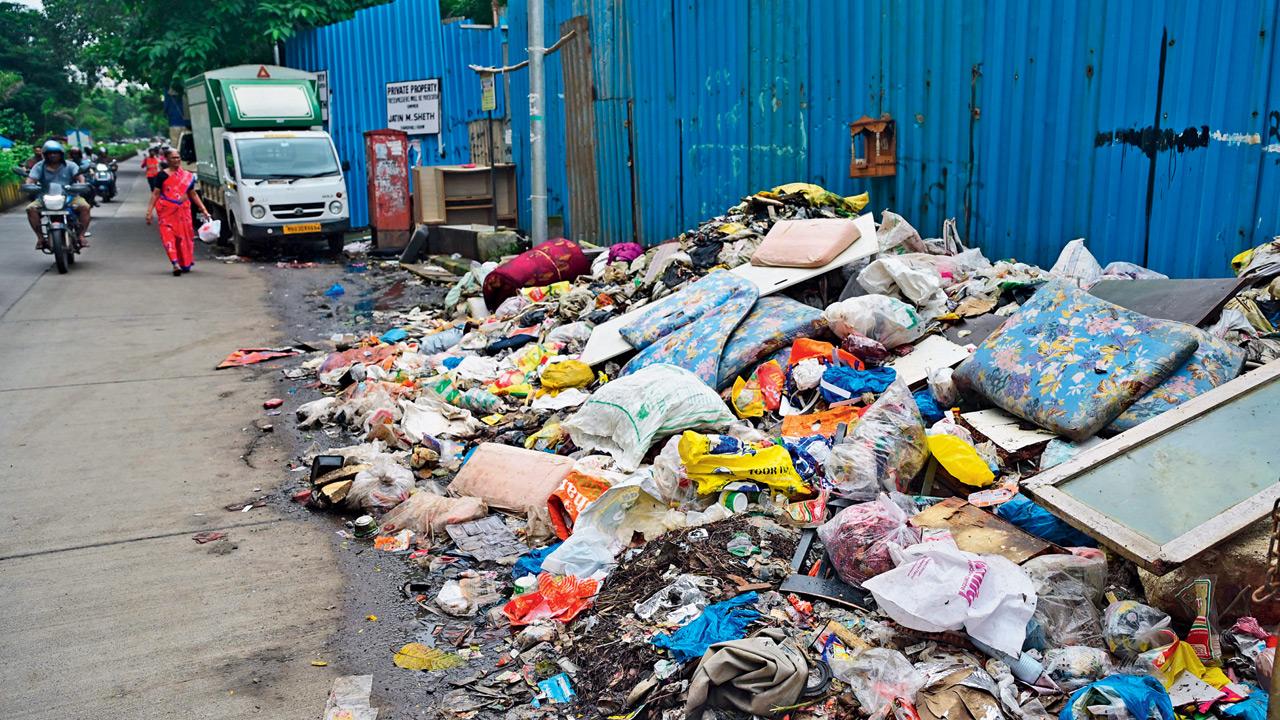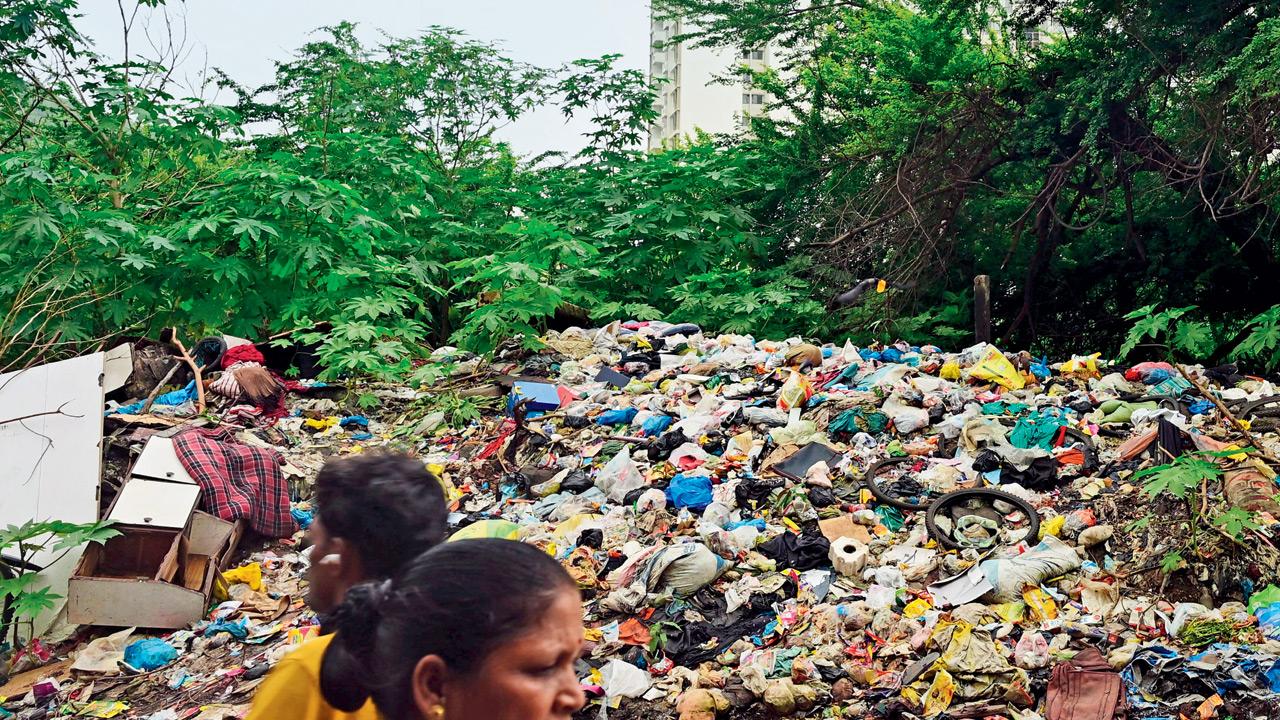Vijaya Koteeswaran, 56, a resident of Shiv Om Co-operative Housing Society, said, “We are paying heavy property tax. But all that money is being spent on free saree distributions and other such freebies to those living in the nearby slums that have mushroomed after we bought houses in this area

Mounds of discarded trash occupies footpaths in Chandivli on Monday. PICS/NIMESH DAVE
While the Brihanmumbai Municipal Corporation (BMC) has intensified its efforts to scientifically dispose of garbage by directing housing complexes to segregate domestic hazardous waste materials along with the regular segregation of wet and dry waste, Chandivli residents have raised concerns about the lack of basic cleanliness of roads and footpaths leading to their homes. Citizens have slammed the civic body for levying heavy penalties on those who fail to segregate waste while neglecting to keep roads free of garbage.
Citizens’ frustration
Vijaya Koteeswaran, 56, a resident of Shiv Om Co-operative Housing Society, said, “We are paying heavy property tax. But all that money is being spent on free saree distributions and other such freebies to those living in the nearby slums that have mushroomed after we bought houses in this area. I began living here in 2004, and at that time, there weren’t even proper roads. It was a beautiful, open green patch of land. It is only in the last few years that all these slums and MHADA houses have cropped up.”

Koteeswaran added, “It has become impossible for us to take a stroll outside or go grocery shopping without stepping in garbage. The few footpaths that exist are completely littered with garbage dumped by slum dwellers and passersby. One day, I saw a [South East] Asian-looking foreigner in a business suit taking pictures of garbage outside the gate of the swanky Boomerang building. I felt ashamed that day. We have beautiful buildings like Boomerang, but the area outside their gates is filthy. How can we be the financial capital and not even have clean roads?”
‘Situation has deteriorated’
Asked why he bought a house in the locality despite knowing the condition of the area, Prashant Kamarikar, 41, said, “The situation is the same across the city. Twenty years ago, when we bought a house here, the situation wasn’t as bad as it is today. And wherever you buy a house, it is only after you get inside your housing complex that you are in a clean space. But the roads that lead to our homes are always filled with garbage, which results in mosquito breeding. It has become impossible to walk in our area, especially in the evenings, because of this. We segregate waste properly in our housing society, and if anyone fails to do so, their household is fined by the society as per BMC norms. If this is the case, who is accountable for keeping the roads that lead to our homes, schools and hospitals clean and ensuring our health is not compromised when we are out of our homes and housing complexes? Why does the BMC not ensure road cleanliness, proper collection and disposal of garbage from the nearby slums?”
Residents have also raised concerns about health issues linked to garbage dumping. “Even if one case of malaria or dengue is registered, the BMC immediately conducts a survey of the society and levies fines if it finds mosquito-breeding sites, even before testing samples collected by its officials. Now, who should we complain to if the roads — which the BMC is responsible for sanitising — are filled with garbage heaps, which are havens for mosquitoes? What if we catch diseases just because we are forced to traverse filthy roads?” asked Sukumar Panicker, a Chandivli resident.
Activist Speak
Mandeep Singh Makkar, founder of the Chandivli Citizens Welfare Association, said “As garbage is not collected from slums like it is done in the bigger housing societies, the slum dwellers dump garbage on roads and footpaths, which spreads diseases and obstructs pedestrians. As per the Swachh Mumbai Prabodhan Abhiyan, lakhs of rupees are paid monthly by the BMC to several self-help groups to collect and dispose of garbage, and maintain cleanliness and hygiene in slum areas. These groups are mostly associated with local netas [politicians], who, via the self-help groups, only fill their own pockets with BMC funds. Civic ward officials, too, despite several complaints lodged by the residents, don't bother to supervise the work done by them. These self-help groups are also paid to create awareness about cleanliness. But I haven’t seen that happening ever. We often see politicians carrying out deep-cleaning drives as photo ops only in clean areas. Regular garbage dumping points continue to cause the spread of diseases. Despite crores of rupees spent on the Swachh Bharat Abhiyan, cleanliness remains only on paper, and public funds are being misused.”
 Subscribe today by clicking the link and stay updated with the latest news!" Click here!
Subscribe today by clicking the link and stay updated with the latest news!" Click here!










